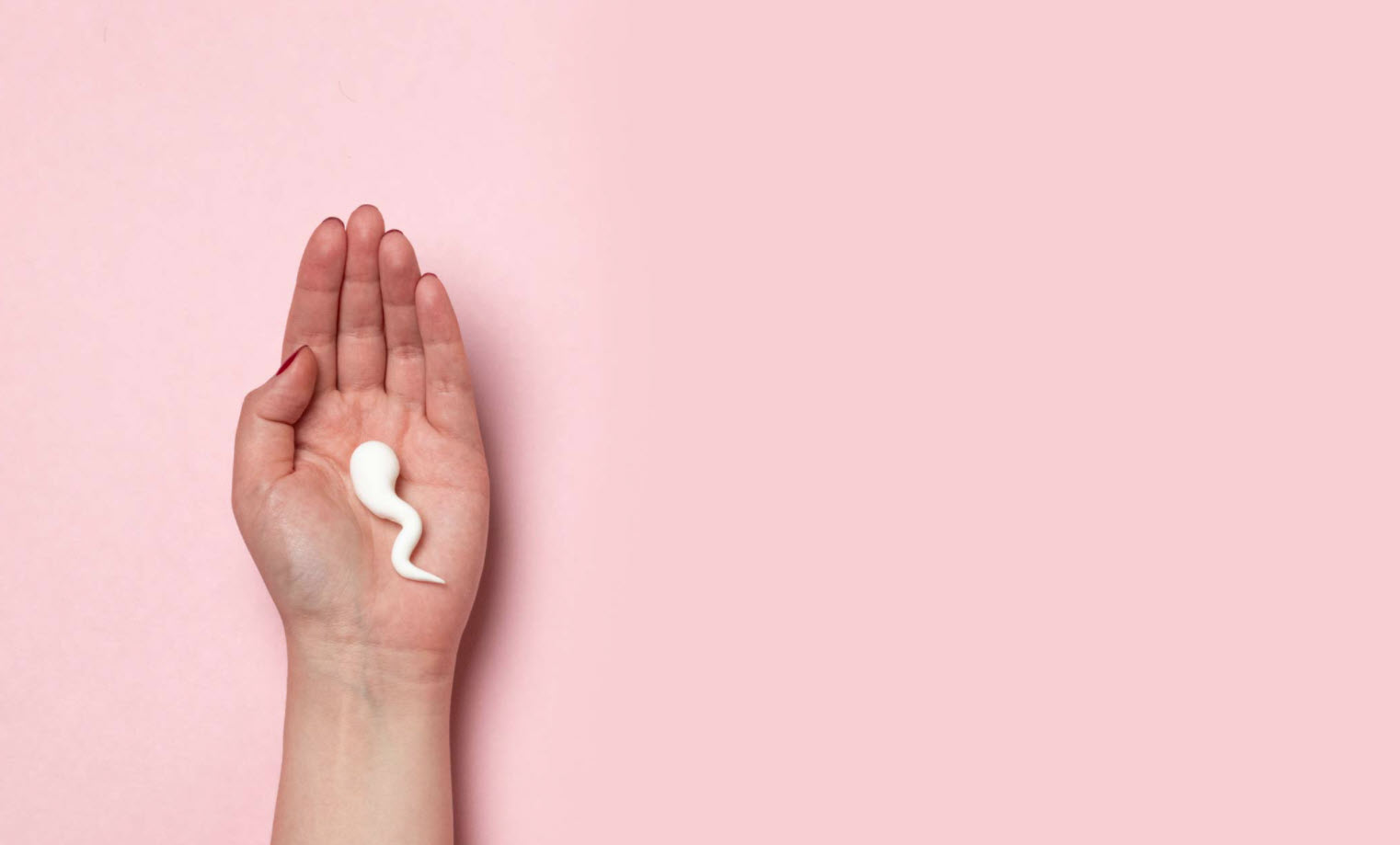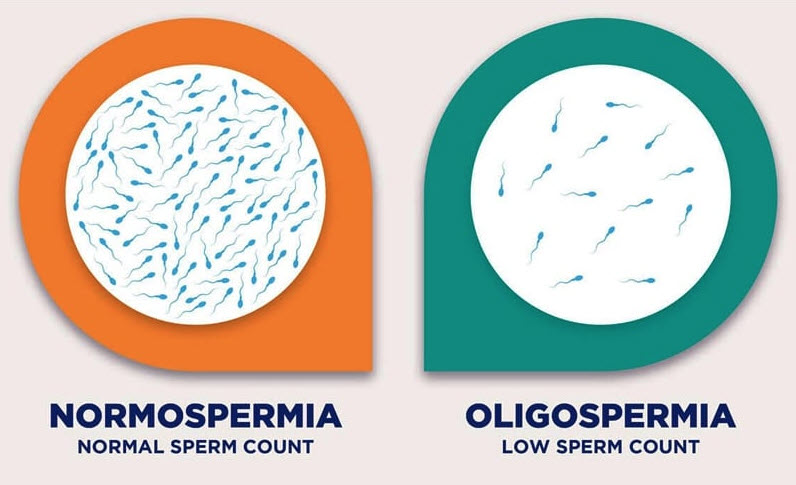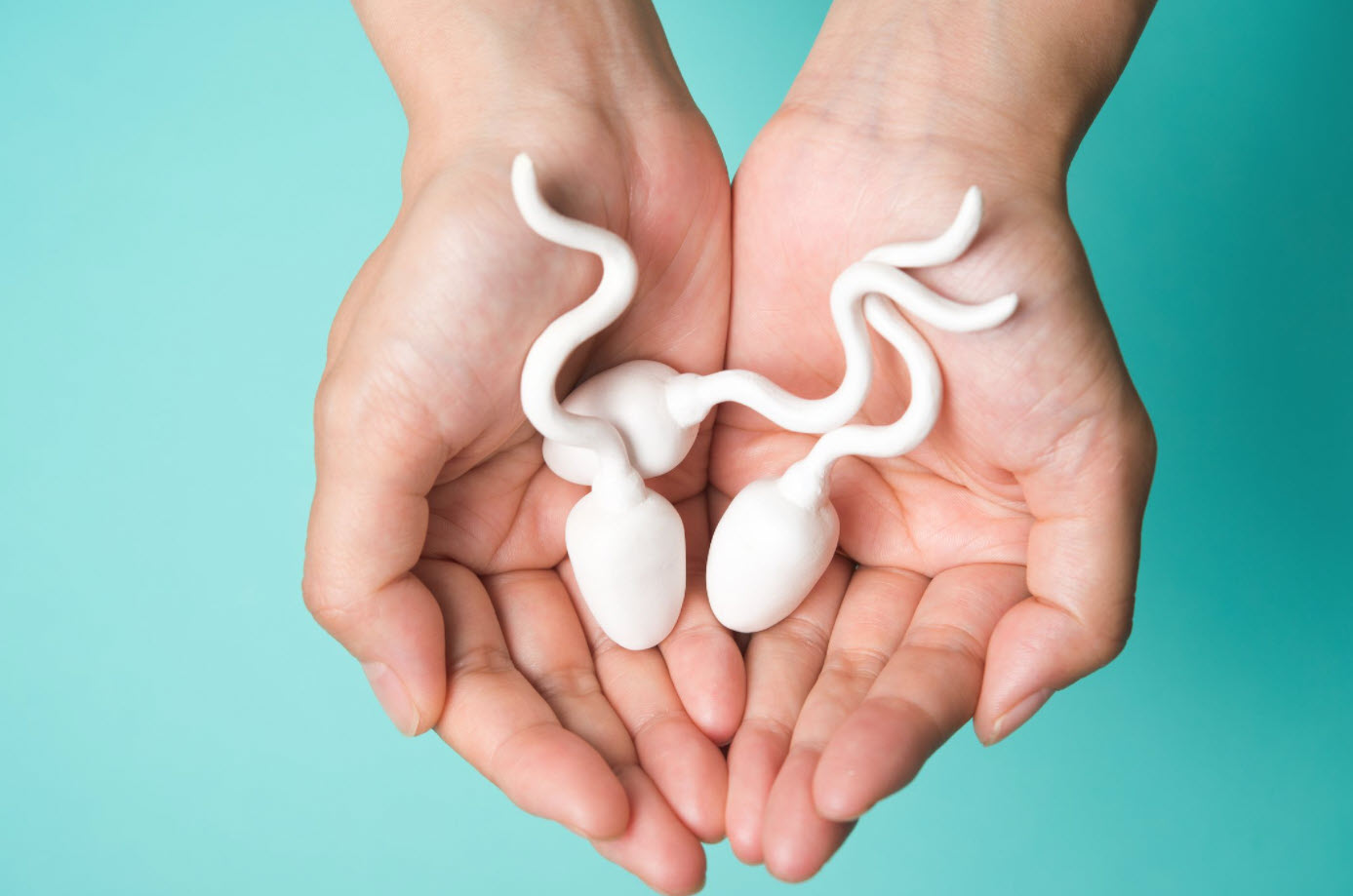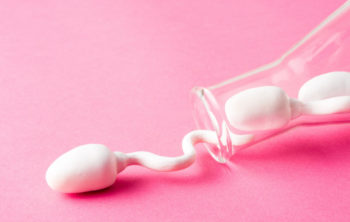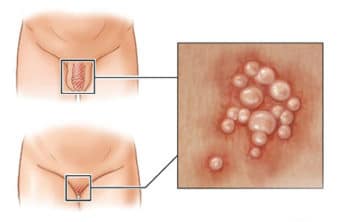Contents
Oligospermia (Low Sperm Count): Types, Causes, Treatment and Home Remedies
Oligospermia is a condition where a man has low sperm count. This can be caused by many factors, such as genetics, lifestyle choices, and health conditions. There are many different types of oligospermia, and each case will require different treatment. In some cases, home remedies may help to improve the condition. However, it is important to consult with a doctor before beginning any treatment plan.
Male infertility is mostly associated with low sperm count. This condition is called oligospermia which means there is insufficient number of sperms in semen. It is also called oligozoospermia.
WHO has given the definition of low sperm count that is “concentration of sperm less than 20 million in 1 ml of semen in reproductive age of male refers as oligospermia”. Oligospermic is a person suffering from low sperm count.
But as a matter of fact that oligospermia may or may not link with the capacity to have sex and erection of penis. An oligospermic person may live and look healthy with all aspect of sexual life but it is harder to conceive but not impossible from him.
What is low sperm count (Oligospermia)?
A low sperm count, also called oligozoospermia, is where a man has fewer than 15 million sperm per millilitre of semen. Having a low sperm count can make it more difficult to conceive naturally, although successful pregnancies can still occur.
Problems with sperm, including a low sperm count and problems with sperm quality, are quite common. They’re a factor in around 1 in 3 couples who are struggling to get pregnant. There’s no clear cause for low sperm counts – they may happen because there aren’t enough healthy sperm being produced by the body or because the ones which are made don’t work properly (or both). Oligospermia tends to get diagnosed more often in older men and it’s more common in smokers.
It’s important to remember that the effect of low sperm counts is usually reversible with treatment – although you should stop smoking if you’re a smoker, for example.
Types of oligospermia:
We divide it upon the severity of condition.
- Mild oligospermia: Concentration of sperms is in between 10-20 million in 1 ml semen.
- Moderate oligospermia: Concentration of sperms in between 5-10 million in 1 ml semen.
- Severe oligospermia: Concentration of sperms in between 0.5 to 5 million in 1 ml semen.
- Aspermia: Absence of sperm in semen.
Diagnosis of oligospermia:
Diagnosis of it is confirmed by microscopic examination of semen. For this procedure patient should not have sex/ masturbation /nightfall for at least 15 days before, otherwise, there would be natural oligospermia which can lead towards misdiagnosis. Microscopic Semen analysis provides detail of sperm percentage, mortality, and vitality, anatomical and morphological defects.
Cause of oligospermia:
Causes of low sperm count can be divided into three types.
1. Pre-testicular cause:
These are systemic health condition which makes testis unable to manufacture and maturation of sperms. Such as:
- Diabetes
- Hypertension
- Thyroid, other hormone problems
- Obesity
- Drugs, alcohol, smoking
- Excess physical work.
- Hormonal imbalances.
- Psychological stress.
- Chemical and metal agent: Pesticide, paint color material and metal cause metabolic defect which lead toward low sperm count.
2. Testicular causes:
In this condition, the testis is unable to produce sperms. Such as:
- Hydrocele
- Varicocele: 20% overall cause of male infertility is due to varicocele.
- Orchitis (inflammation of testis)
- Congenital malfunction and malformation of testis due to chromosomal defect.
- Activities that cause overheating of testicle: Prolong working in the hot environment or placing the laptop on your thighs causes an increase in temperature in testis.
- X-ray
3. Post-testicular cause:
- Obstruction in vas deference or ejaculatory duct.
- Prostate gland inflammation or BPH (benign prostate hyperplasia)
- Benign and cancerous growth
Oligospermia and infertility:
Oligospermia does not always lead towards infertility but the chances of conceiving are lesser than the normal couple. Some oligospermic people conceive normally.
The worst aspect of oligospermia is that it usually occurs with other sperms deformity. Oligospermic person mostly has less number of active sperm cells.
Oligospermia and pregnancy:
Oligospermic can have a child but it needs more knowledgeable sex timing for the match with ovulation, better sex position, and precautions after sex.
Treatments of oligospermia:
Treatment of oligospermia depends upon the causative disease. There is 4 line of treatment.
1. Medicine:
Treating systemic infection, diabetes, hypertension and other underlying diseases can help increase sperm count. Your doctor may also prescribe hormone replacement therapy for otherwise deficient person for some period of life.
2. Surgery:
Disease like hydrocele, varicocele, tumor or other obstruction needs surgical correction.
3. Supportive treatment:
Sperm production is a complex phenomena. Deficiency of mineral and vitamin causes oligospermia. Vitamin E is very necessary for germ cells to causes spermatogenesis. Minerals like zinc are responsible for fertilization and DNA stabilization. Supplements of vitamin, mineral and antioxidants are essential for oligospermia treatment.
4. Lifestyle changes:
- Quit smoking and alcohol.
- Do not wear tight cloth.
- Don’t place laptop over genital.
- Take appropriate nutrition and diet.
- Maintain a healthy weight.
- Massage with herbal oil.
Oligospermia natural treatment:
- Maca root (Lepidium meyenii): Powder of maca root is extremely beneficial for reproductive health. Take 1 Tablespoon maca root powder with water or milk twice a day for 2 months or more.
- Ashwagandha (Withania somnifera): Ashwagandha is used for centuries in Ayurveda to treat male infertility. Take Extract of ashwagandha root in powder or tablet form with milk twice a day.
- Shatavari (Asparagus racemosus): Shatavari is good for the general health of male and female. It increases the chances of pregnancy for both partners. Shatavari can be used in powder form or in extract juice form.
- Garlic (Allium sativum): Garlic is a natural aphrodisiac. It increases blood circulation in genital.
- Onion (Allium cepa): Oozed juice of onion is very helpful for spermatogenesis. Take one spoon of juice with water. Onion should not be used with milk products.
- Honey: Use of honey is good for both partners. Honey is good for sexual pleasure. Its mineral and fructose make a good natural remedy for low sperm count.
- Gokchur ( Tribulus terrestris): Gokchur is Indian medicine which has the potency to increase sperm count. Take 1 spoon of gokchur powder with milk on empty stomach.
- Milk of bargad (banyan tree or Ficus benghalensis): Take 1 Tablespoon of milk of this tree with cow milk.
- Draksha or raisins (dry grapes): Consume 10-20 black raisins soaked in water with milk before 2 hours from going into bed. It is a natural aphrodisiac.
- Bhindi or Lady finger or okra (Abelmoschus esculentus): Ladyfinger is widely used for oligospermia. It is a cheap but highly effective remedy for oligospermia. Root extract powder of lady finger is used for oligospermia.
- Kesar or Saffron (Crocus sativus): Saffron comes very costly and but its effects worth its cost. Take one pinch of saffron with hot milk at night for 1-2 months.
- Buffalo milk: In Ayurveda, ancient doctors believed that buffalo milk is more beneficial for sexually active person. It increases sperm count and sexual pleasure.
Oligospermia treatment in oriental medicine:
Oligospermia, or low sperm count, is a common condition that can lead to infertility. Oligospermia treatment in oriental medicine has been very successful and is still widely practiced today.
Oriental medicine has been used for thousands of years to treat a variety of conditions related to health and fertility. Oligospermia treatment in oriental medicine is a natural alternative that some couples have found useful as they struggle with infertility. This article will discuss how this type of therapy works as well as some products available from traditional Chinese pharmacies designed specifically for treating male infertility.
Oligospermia treatment in oriental medicine has been very successful because it is designed to improve overall health rather than just treating symptoms. Oligospermia treatment in oriental medicine works on the kidneys and liver which are known to play an important role in male fertility. By supporting these two organs and tonifying qi, or life energy, overall reproductive ability is increased and sperm count should rise naturally without any major lifestyle changes.
Oligospermia treatment in oriental medicine uses a variety of products made from plants grown specifically for their medicinal properties such as d quai root (Angelica sinensis). Oligospermia treatment in oriental medicine utilizes both herbal and acupuncture treatments. Oligospermia treatment in oriental medicine begins with a complete analysis of Chinese and Western medical conditions as well as the patient’s lifestyle choices such as diet, exercise, and sleep habits. Oligospermia treatment in oriental medicine is meant to be used as an effective complementary therapy along with standard western infertility treatments such as artificial insemination or surgery.
Conclusion:
Oligospermia is a condition where a man has low sperm count. This can be caused by many factors, such as genetics, lifestyle choices, and health conditions. There are many different types of oligospermia, and each case will require different treatment. In some cases, home remedies may help to improve the condition. However, it is important to consult with a doctor before beginning any treatment plan. If you or someone you know is suffering from oligospermia, please seek medical attention right away. Thanks for reading!
Read more: How To Get Pregnant: 10 Steps Plan For A Healthy Baby
Disclaimer:
Above article is only for knowledge purpose. Please contact your healthcare provider before using any of above medicine or method. For any query or personal consultation according to your health condition please contact your doctor.

